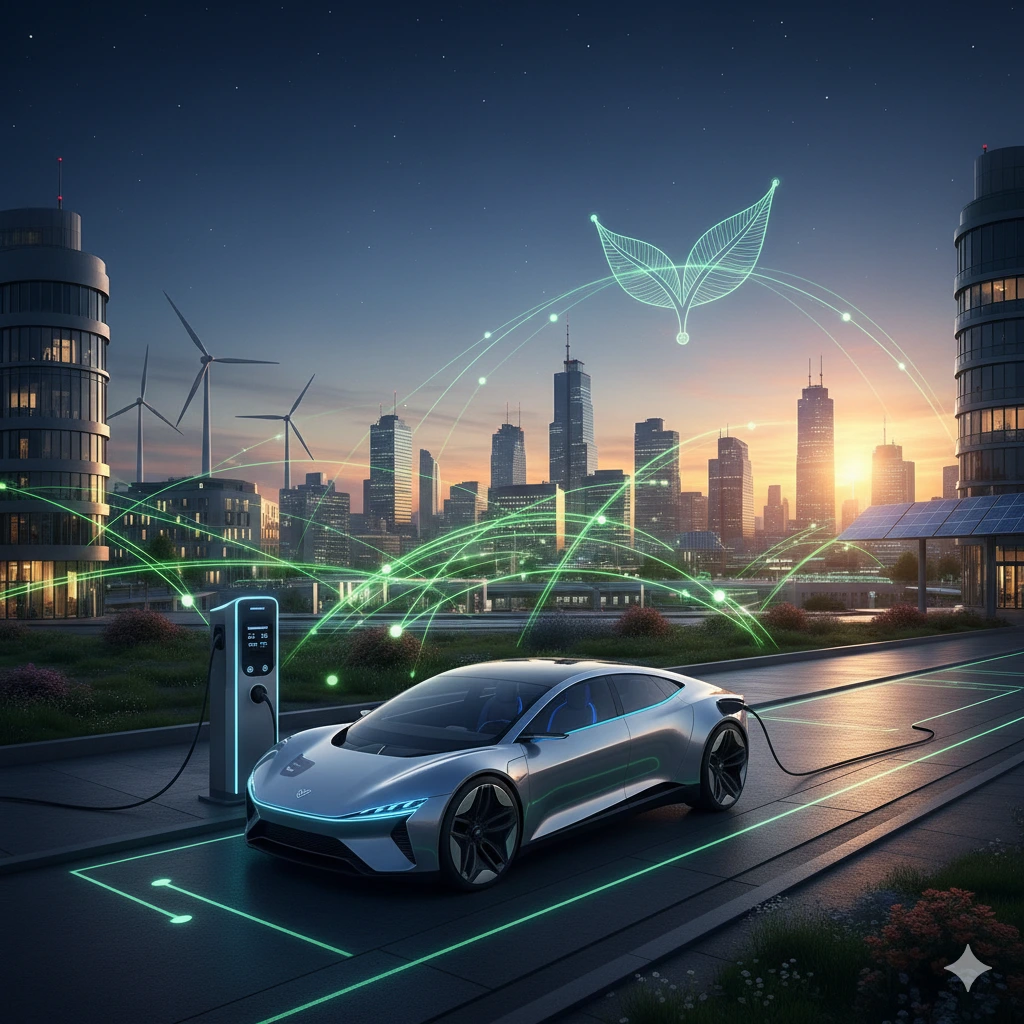Germany, the automotive heart of Europe, is charging full speed ahead into the electric vehicle (EV) era. In 2025, the German government unveiled an ambitious expansion plan to accelerate EV production, build nationwide charging infrastructure, and strengthen its green transport ecosystem — marking a decisive step toward carbon neutrality by 2045.
The initiative, called “ElektroMobilität Deutschland 2030”, aims to make Germany the world’s largest EV manufacturing hub, with a target of 20 million EVs on German roads by 2030. The program, backed by €25 billion in funding, involves key industry giants like Volkswagen, BMW, Mercedes-Benz, and Porsche, alongside energy providers and technology firms.
A National Vision for Sustainable Transport
Germany’s electric vehicle transformation isn’t just an industrial upgrade — it’s a cornerstone of its climate and economic strategy.
Federal Minister for Digital and Transport Volker Wissing announced that the country is now entering the “decisive decade” for clean mobility.
“Our vision is clear: every German should be able to drive electric with confidence, supported by clean energy and smart infrastructure,” Wissing stated at the 2025 Green Mobility Summit in Berlin.
To achieve this, the government has intensified subsidies for EV buyers, introduced tax exemptions for electric fleets, and committed to building 1 million public charging stations by 2028.
EV Production Boom Across Germany
German automakers have ramped up electric vehicle production at record pace.
- Volkswagen Group has converted its flagship Wolfsburg plant entirely to EV manufacturing, producing models under the ID. series, including the newly launched ID.7 sedan and ID.Buzz Cargo van.
- BMW’s Leipzig plant now focuses on next-gen solid-state battery integration, aiming to increase driving range by 30% compared to current lithium-ion technology.
- Mercedes-Benz is expanding its EQ lineup while introducing AI-powered assembly lines to improve efficiency and reduce energy consumption.
Collectively, Germany’s EV factories are projected to produce 3.5 million electric vehicles annually by 2027, strengthening Europe’s position in the global EV supply chain.
Charging Infrastructure Expansion
A robust charging network is key to Germany’s EV revolution. The government has announced plans to install fast-charging stations every 30 kilometers on national highways and urban centers.
Energy companies like EnBW, RWE, and E.ON are partnering with municipalities to deploy high-speed 350 kW chargers capable of charging a vehicle to 80% in under 15 minutes.
In addition, wireless charging trials have begun in Munich and Hamburg using inductive road technologies, allowing EVs to charge dynamically while in motion — a groundbreaking innovation for long-distance electric travel.
Battery Innovation and Sustainability Focus
Germany’s green mobility revolution also hinges on sustainable battery technology. The Fraunhofer Institute for Battery Cell Production (FFB) and Helmholtz Research Center are leading projects on recyclable solid-state batteries and carbon-neutral manufacturing processes.
The newly inaugurated European Battery Alliance Campus in Münster is working to ensure supply chain independence by producing eco-friendly batteries using local lithium and cobalt alternatives.
Recycling initiatives by Volkswagen’s Salzgitter plant now recover up to 95% of battery materials, marking a major milestone in circular economy practices.
Public Transport Electrification
Germany’s mobility transition extends beyond private cars. The federal government is investing in electric buses, trains, and freight logistics.
- Over 70% of new buses purchased in 2025 are electric or hydrogen-powered.
- The Deutsche Bahn (DB) is rolling out fully electric regional train networks using battery-hybrid locomotives, especially in areas not yet connected to overhead power lines.
- Logistics firms like DHL and DB Schenker are rapidly electrifying their fleets, supported by grants for renewable-powered charging depots.
International Collaboration and Market Leadership
Germany is working closely with the European Union, Norway, and Japan to standardize EV technology, safety regulations, and energy storage systems. The goal is to build a seamless European EV ecosystem that promotes interoperability across countries.
At the same time, German automakers are expanding their global footprint, setting up battery and EV assembly plants in the U.S., India, and Southeast Asia to strengthen supply resilience and market share.
Germany’s EV strategy has also made it the largest exporter of electric vehicles in Europe, accounting for nearly 40% of all EU EV exports in 2025.
Economic and Environmental Impact
The electric vehicle expansion is projected to reduce Germany’s CO₂ emissions by 55 million tons annually by 2030. The green mobility shift is also expected to create over 400,000 new jobs in manufacturing, software development, and renewable energy sectors.
With strong policy support, cutting-edge innovation, and international cooperation, Germany is solidifying its reputation as Europe’s driving force in sustainable transportation.







